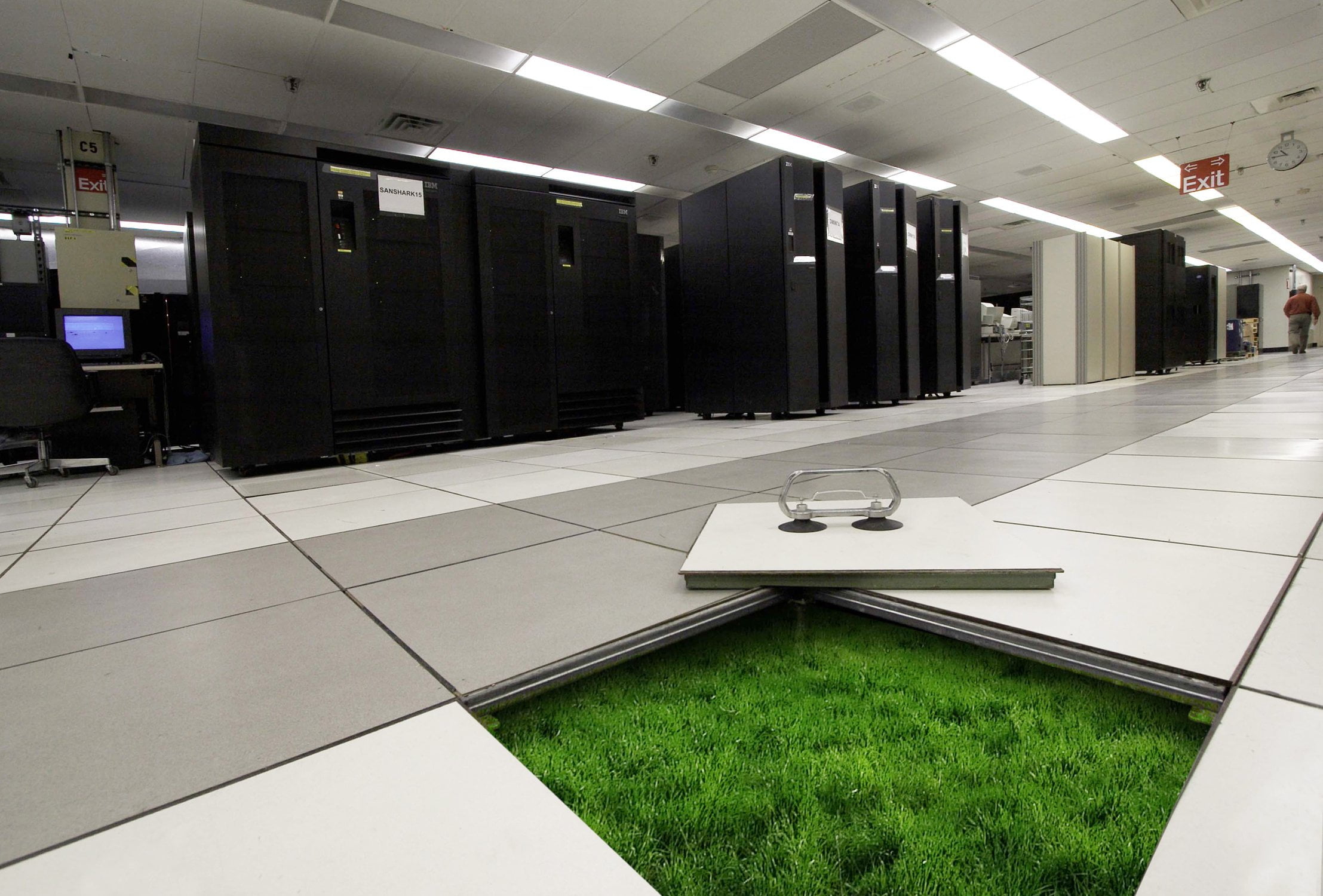2013
Green hosting or eco-friendly hosting is Internet hosting which involves green technologies to reduce environmental impact.
Green hosting includes Carbon offsetting, powering a data center directly with renewable energy, planting trees, plants, and grass around and over Data Centers, and more day-to-day activities such as energy conservation and the use of energy-saving appliances. Green hosting utilizes green marketing focusing on green consumers who are concerned about the environment.
World Internet usage statistics show that the Internet is still rapidly growing in the U.S. and growing from 400 to 1000% a year, worldwide. In fact, the total electric bill to operate those servers and related infrastructure equipment was $2.7 billion in the United States and $7.2 billion worldwide. It is estimated that if energy consumption with web hosting keeps rising at the current rate by 2020 the industry will be more polluting than the airline industry. With so much demand for resources, eco-friendly hosting services emerged.
Hosting sites that contain Green-e certification labels are organizations that voluntarily adhere to strict environmental guidelines. A green organization doesn’t necessarily have to have access to green power from wind, water, or solar energy, they can also purchase green certificates to offset the use and cost of conventional energy.
Green hosting companies will work to consolidate data, preventing them from having too many online at a time. A hosting organization or any organization can become more self-efficient by: -Using low-voltage computer equipment -Contributing to other Green organizations -Using Energy Efficient appliances in break rooms -The use of energy-efficient lighting in the building -Conducting meetings via the Internet.
2024
In an age where digital expansion is relentless, the carbon footprint of our online activities often goes unnoticed. Yet, the internet’s environmental impact is profound, with data centers worldwide consuming vast amounts of electricity, much of which is generated from non-renewable resources. This is where green web hosting and green data centers come into play, heralding a new era of environmental responsibility in the digital domain.
Understanding Green Web Hosting
Green web hosting is a service provided by eco-conscious hosting companies committed to reducing the environmental impact of their data centers. These companies employ various strategies to minimize energy consumption and carbon emissions, such as using renewable energy sources, purchasing carbon offsets, and utilizing energy-efficient technologies. The goal is to host websites in a way that is not only reliable and efficient but also sustainable.
The Role of Renewable Energy
One of the cornerstones of green web hosting is the use of renewable energy sources like wind, solar, and hydroelectric power. By powering data centers with green energy, hosting companies can significantly reduce their reliance on fossil fuels, thereby decreasing their carbon footprint. Some companies go a step further by generating their own renewable energy, while others purchase Renewable Energy Certificates (RECs) to offset their energy use.
Energy Efficiency and Cooling Innovations
Green data centers also focus on energy efficiency, employing advanced cooling technologies and server configurations that require less power to operate. Innovations such as outside air cooling, hot aisle/cold aisle layouts, and liquid cooling systems have revolutionized how data centers manage heat, one of the biggest challenges in reducing energy consumption.
Carbon Offsetting and Beyond
For emissions that cannot be eliminated, green hosting providers invest in carbon-offsetting projects. These initiatives might include reforestation, supporting renewable energy projects in other sectors, or investing in community programs that aim to reduce greenhouse gas emissions elsewhere, effectively balancing out their own carbon output.
The Global Impact of Green Hosting
The transition to green web hosting and the proliferation of green data centers have profound implications for our planet. Here are some of the key ways in which they make a difference:
Reducing the Carbon Footprint of the Internet
As the internet grows, so does its energy demand. Green web hosting plays a crucial role in ensuring that this demand does not translate into increased carbon emissions. By leveraging renewable energy and efficient technologies, green data centers can significantly reduce the internet’s carbon footprint.
Setting a Standard for Sustainability
Green hosting companies are not just reducing their own environmental impact; they are setting new standards for the industry. Their commitment to sustainability encourages others to follow suit, creating a ripple effect that can lead to widespread changes in how data centers operate globally.
Supporting Renewable Energy Development
The demand for green web hosting increases the demand for renewable energy, providing a crucial market for green power. This can accelerate the development of renewable energy projects, contributing to a broader transition away from fossil fuels across all sectors.
Enhancing Corporate Responsibility
Businesses that choose green web hosting are taking a stand for the environment, demonstrating corporate social responsibility. This not only benefits the planet but can also enhance a company’s reputation among consumers who are increasingly looking to support eco-friendly businesses.
Conclusion: A Greener Future with Green Hosting
The digital world’s environmental footprint is an issue that cannot be ignored, but green web hosting and green data centers offer a viable path toward a more sustainable future. By choosing green hosting services, businesses and individuals can contribute to a significant reduction in the internet’s carbon footprint, paving the way for a cleaner, greener world.
As we move forward, the importance of adopting environmentally friendly practices in all aspects of life, including our digital activities, becomes ever more clear. Green web hosting is not just a trend; it’s a necessary evolution in our approach to web infrastructure, one that will help ensure the health and longevity of our planet for generations to come.

